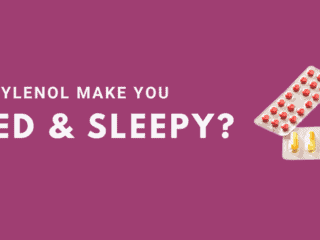The following information comes from DailyMed, an FDA label information provider.
Adverse Reactions
The following adverse reactions have been reported with spironolactone and, within each category (body system), are listed in order of decreasing severity.
Digestive: Gastric bleeding, ulceration, gastritis, diarrhea and cramping, nausea, vomiting.
Reproductive: Gynecomastia, inability to achieve or maintain erection, irregular menses or amenorrhea, postmenopausal bleeding, breast pain. Carcinoma of the breast has been reported in patients taking spironolactone but a cause and effect relationship has not been established.
Hematologic: Leukopenia (including agranulocytosis), thrombocytopenia.
Hypersensitivity: Fever, urticaria, maculopapular or erythematous cutaneous eruptions, anaphylactic reactions, vasculitis.
Metabolism: Hyperkalemia, electrolyte disturbances.
Musculoskeletal: Leg cramps.
Nervous system/psychiatric: Lethargy, mental confusion, ataxia, dizziness, headache, drowsiness.
Liver/biliary: A very few cases of mixed cholestatic/hepatocellular toxicity, with one reported fatality, have been reported with spironolactone administration.
Renal: Renal dysfunction (including renal failure).
Skin: Stevens-Johnson Syndrome (SJS), toxic epidermal necrolysis (TEN), drug rash with eosinophilia and systemic symptoms (DRESS), alopecia, pruritus.
Disclaimer: this article does not constitute or replace medical advice. If you have an emergency or a serious medical question, please contact a medical professional or call 911 immediately. To see our full medical disclaimer, visit our Terms of Use page.
OVERVIEWDOSAGESIDE EFFECTSINTERACTIONSHALF-LIFE
Generic Name: Spironolactone
Class: Aldosterone antagonist, potassium-sparing diuretic
Availability: Prescription
Molecular Formula: C24H32O4S
Substance UNII: 27O7W4T232
What is Spironolactone?
Spironolactone is an aldosterone antagonist and potassium-sparing diuretic. It is often sold under the trade names Aldactone and CaroSpir.
What is Spironolactone Used For?
The FDA has approved spironolactone for the treatment of heart failure, hypertension, edema associated with nephrotic syndrome or hepatic cirrhosis, and primary hyperaldosteronism. People also sometimes use it to treat acne or to promote weight loss.
How Does Spironolactone Work?
Spironolactone works by blocking the activity of aldosterone, a steroid hormone associated with water retention. This fluid retention can cause certain problems to worsen such as kidney, heart, or liver diseases or conditions. Taking this medication causes higher amounts of water and sodium to be eliminated, thereby reducing water retention.
Spironolactone also prevents your body from excreting or getting rid of potassium. Notably, potassium helps reduce water retention through promoting urination and excretion of sodium during urination.
How Long Does It Take for Spironolactone to Work?
The time it takes for this drug to work depends on what it is being used for and other factors, such as the presence of other medical conditions and dosage being taken. A 2012 study found that it generally takes a few weeks for spironolactone to become effective when it is used for treating acne.
Do Not Use Spironolactone If:
There are several situations where this medication may not be the right choice for you. According to the FDA, the following should not use spironolactone:
- Patients with hyperkalemia (high potassium)
- Patients with Addison’s disease (hypocortisolism or adrenal insufficiency)
- Patients who are using eplerenone (Inspra)
Please note that this list may not be complete, and there may be other situations where use of this drug is not advisable.
Disclaimer: this article does not constitute or replace medical advice. If you have an emergency or a serious medical question, please contact a medical professional or call 911 immediately. To see our full medical disclaimer, visit our Terms of Use page.




